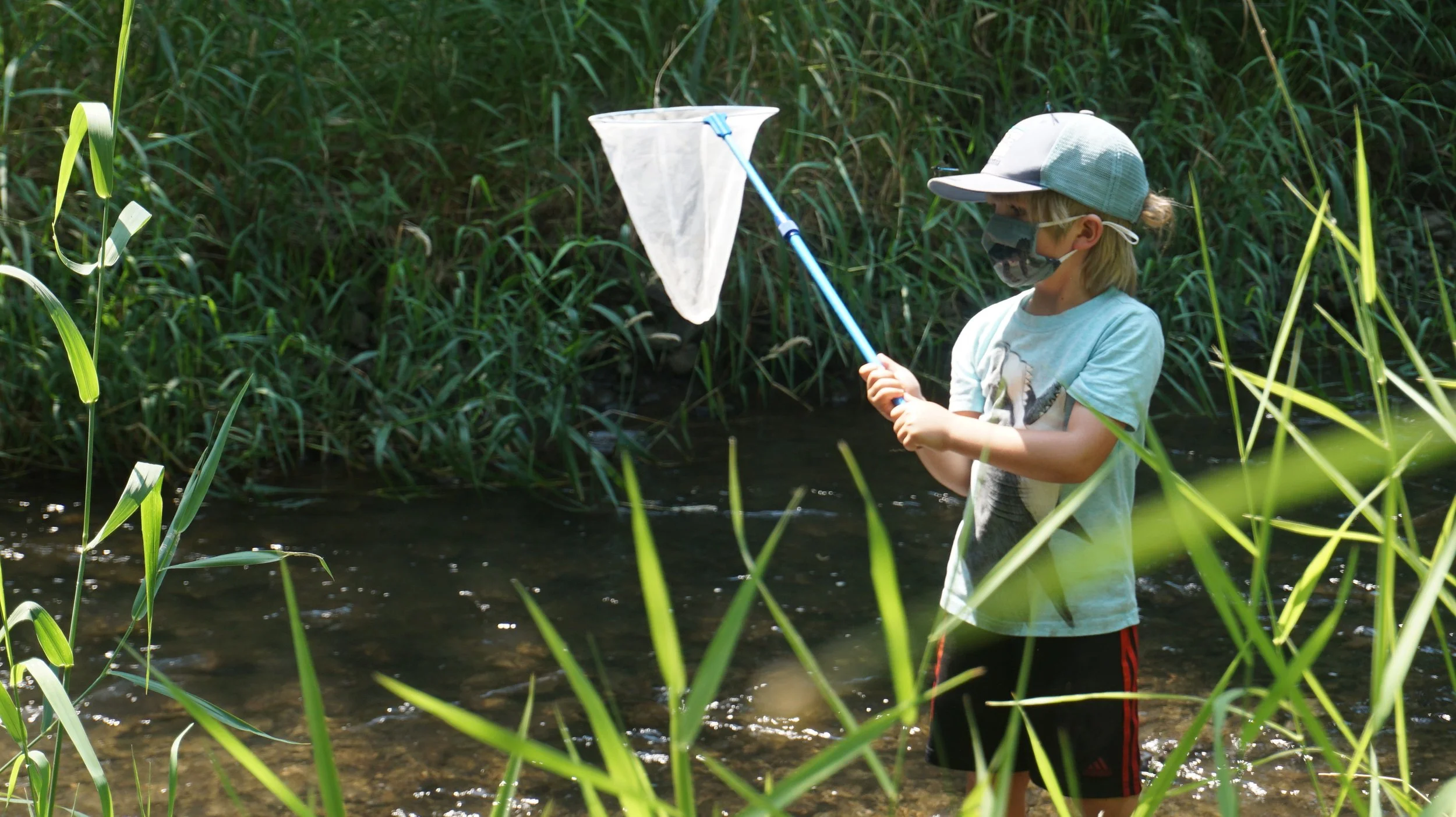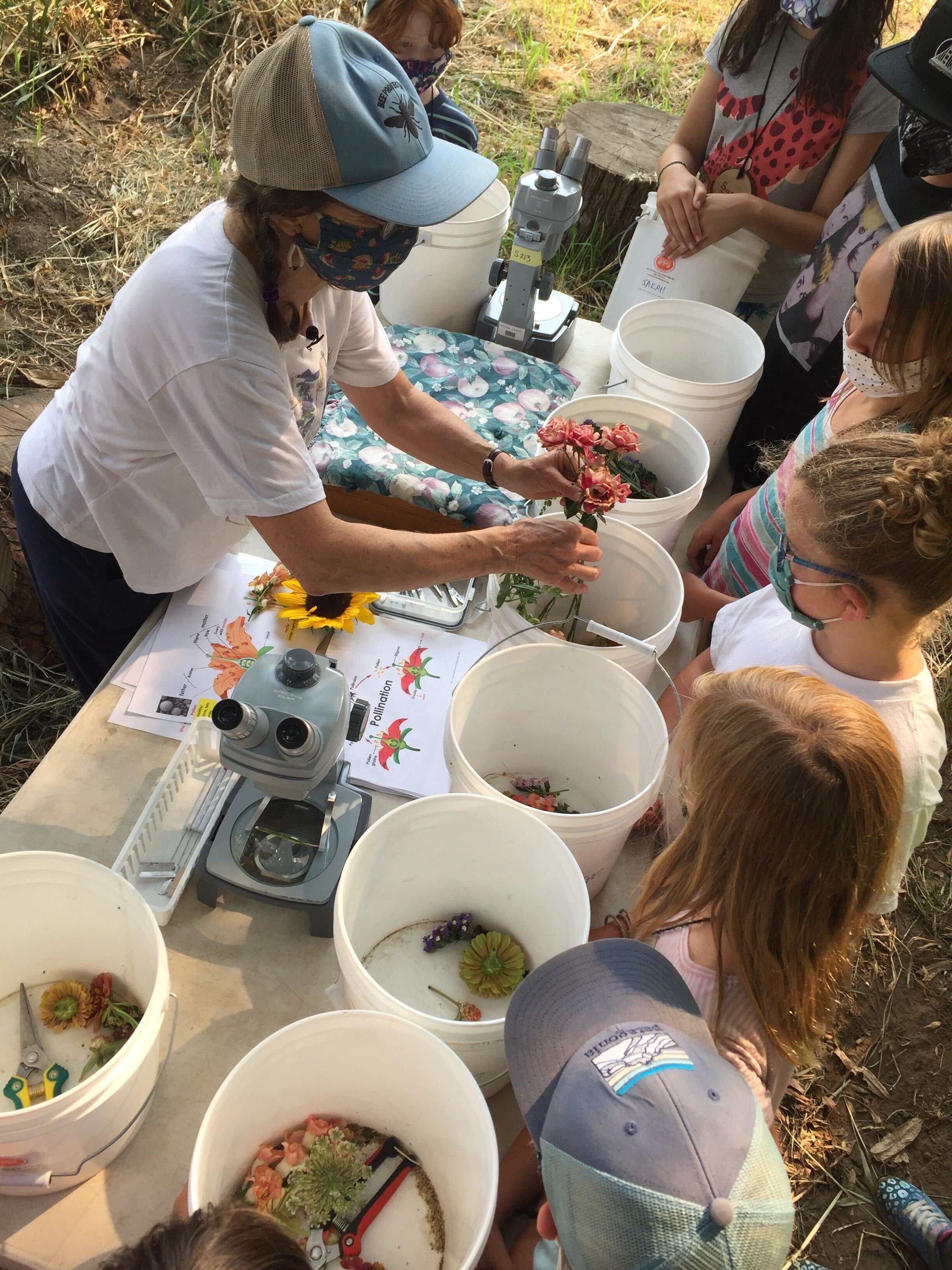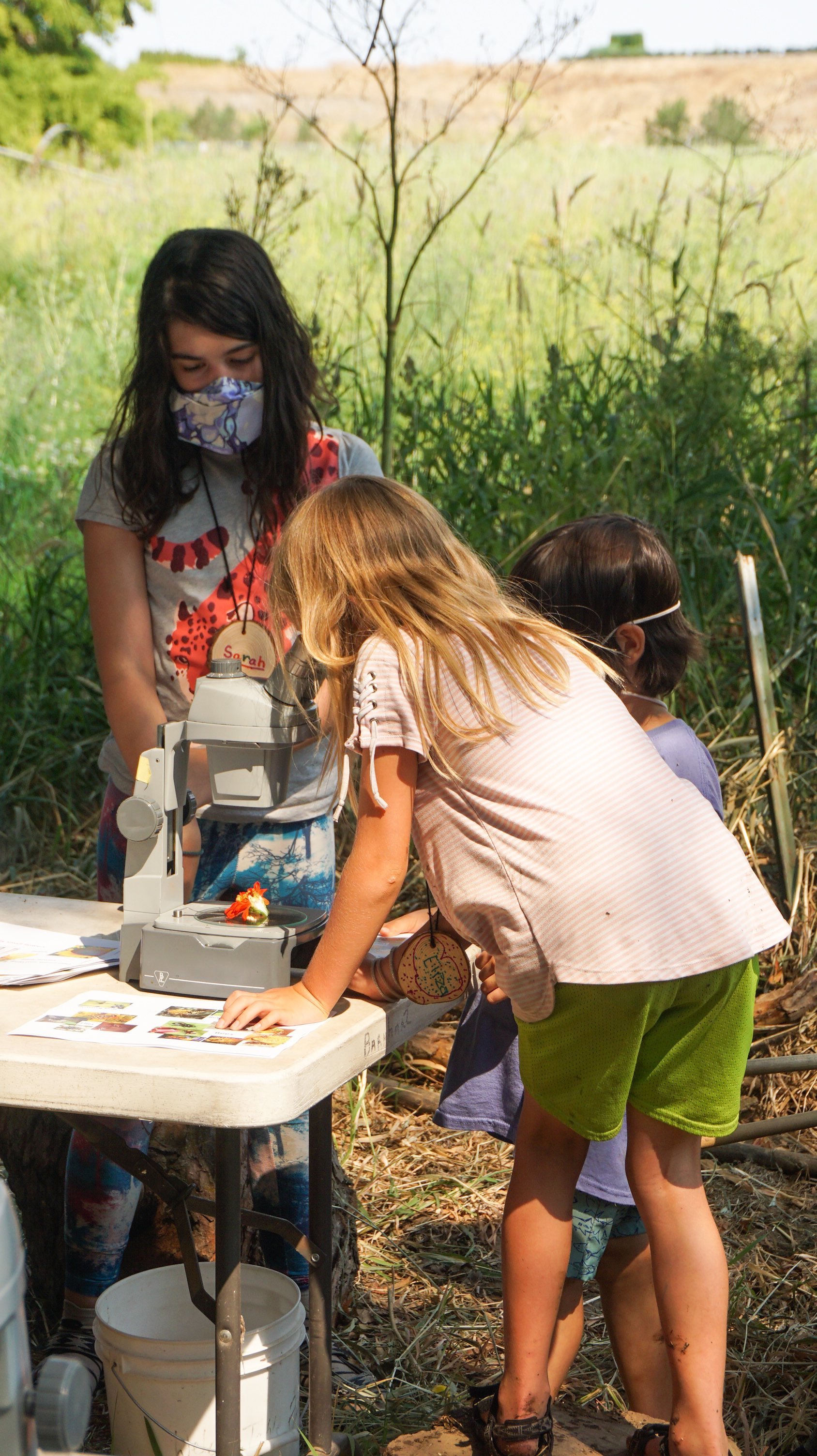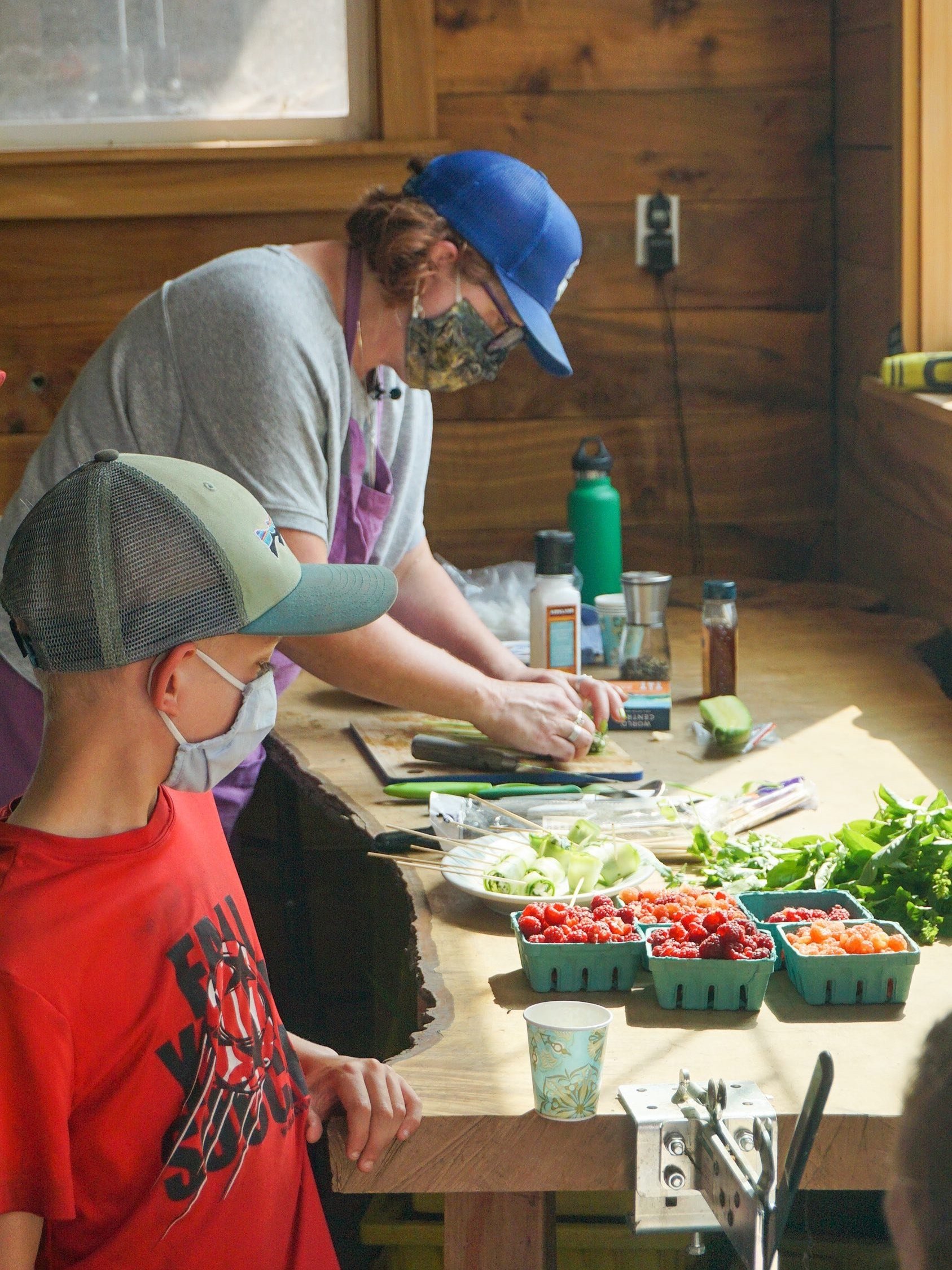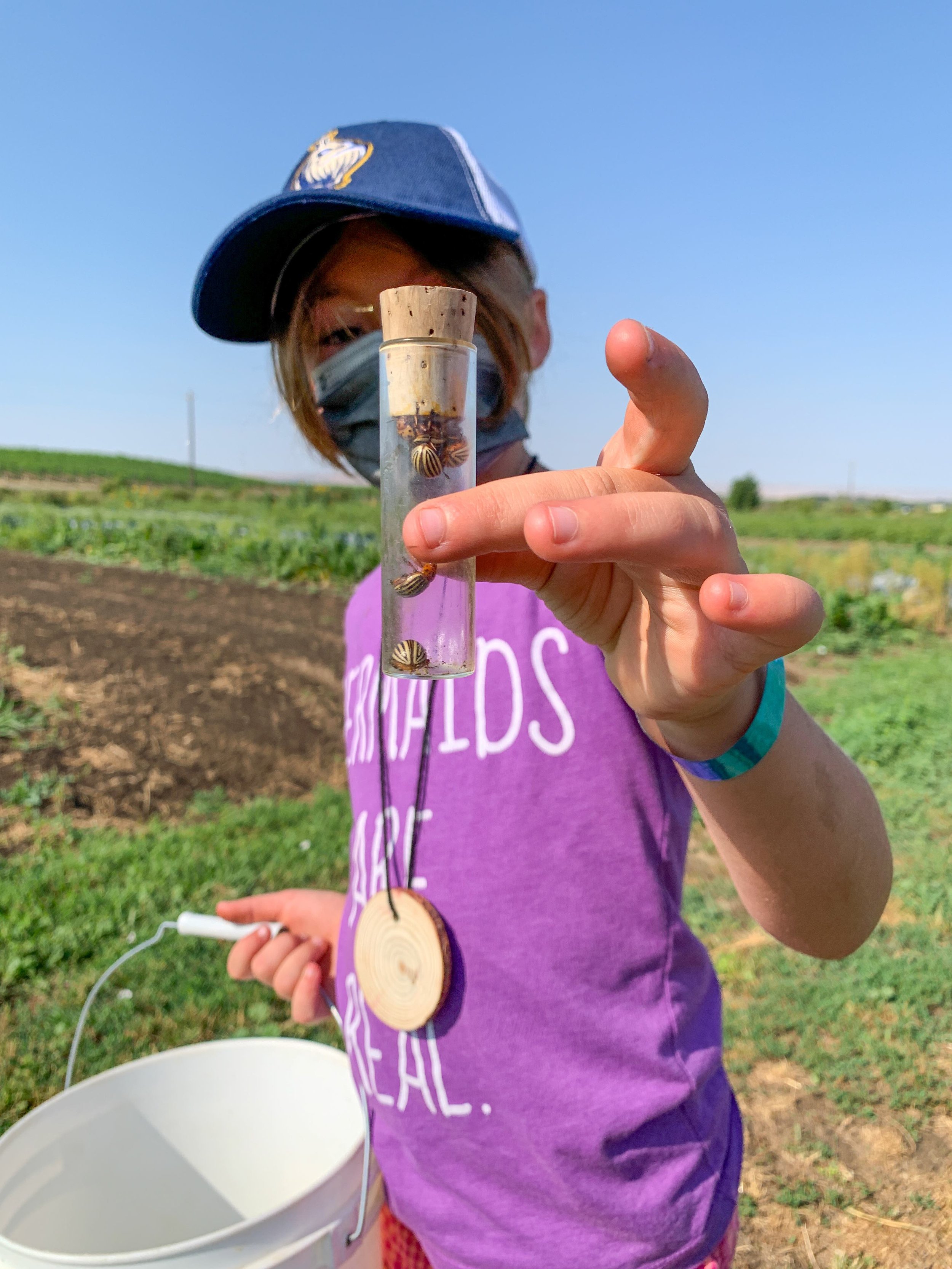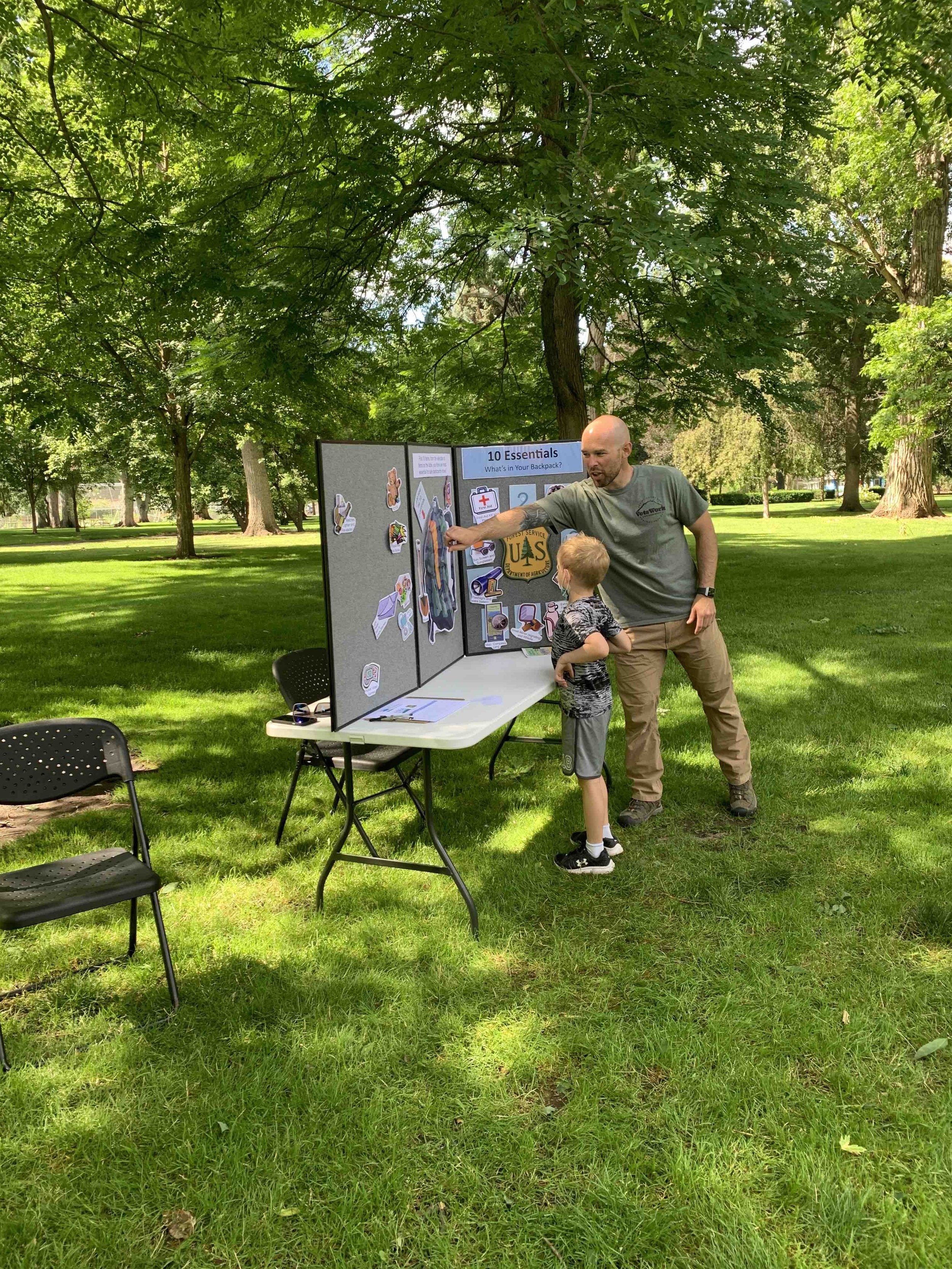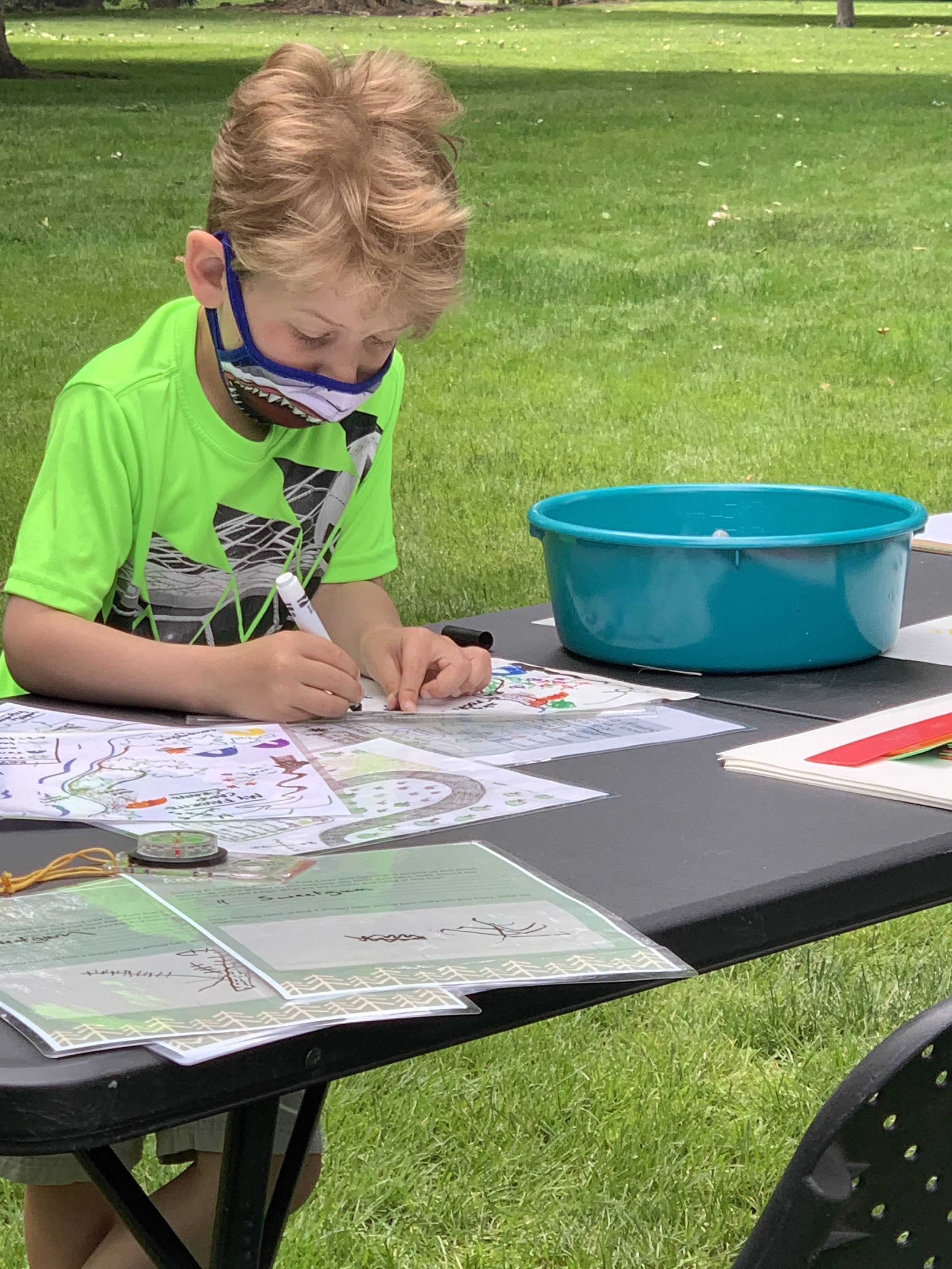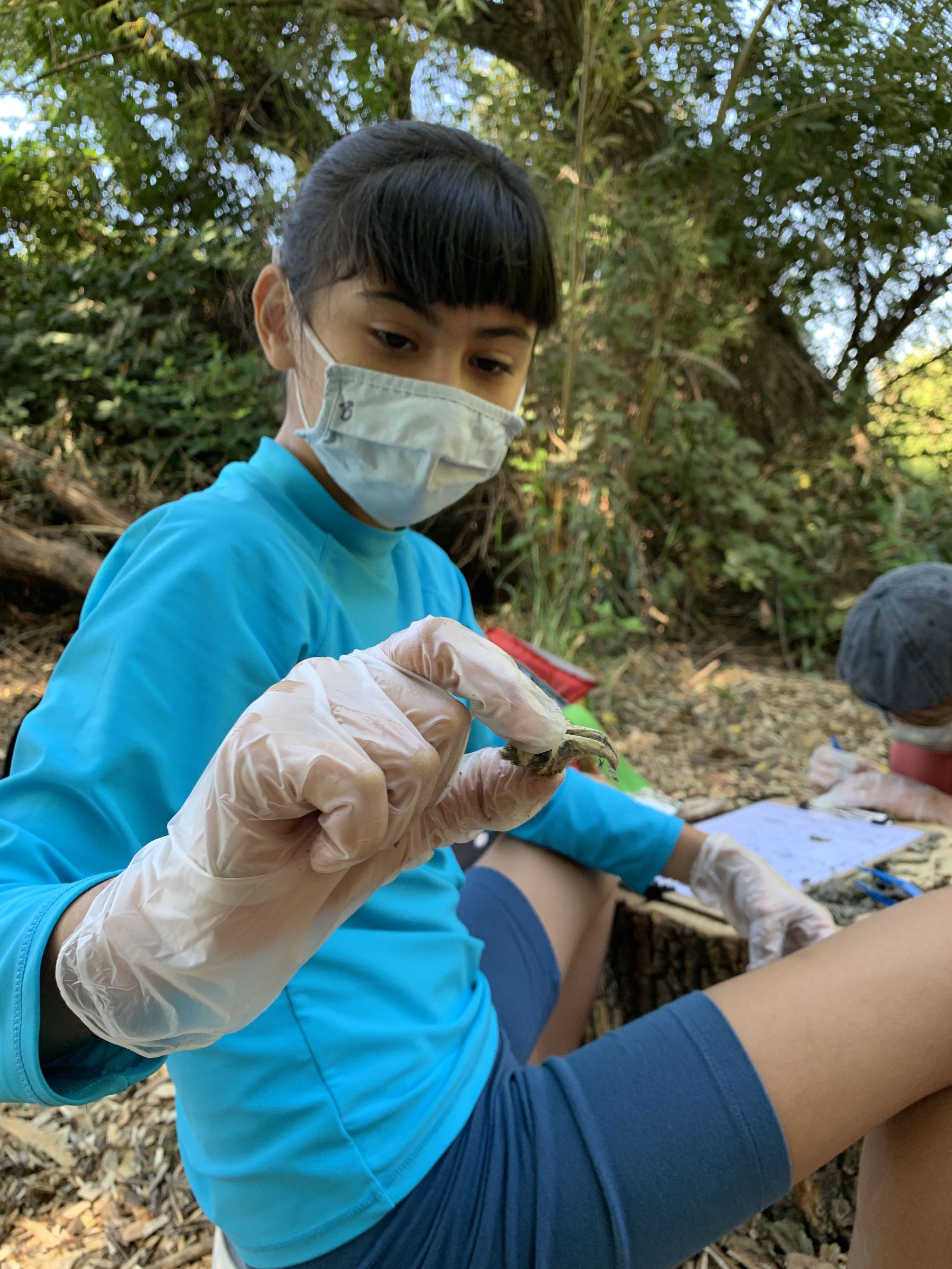Youth Education: Creating a lifelong love for the outdoors
BY KATY RIZZUTI, EDUCATION SPECIALIST | PHOTOGRAPHS BY ALYSSA MARTINEZ NEUMANN
Whitman professor Heidi Dobson joins our Farm Kids program each summer. Her shadowbox of insects gleams with vibrant colors as she walks toward the tables, bee earrings catching the sunlight. With enthusiasm and a passion for entomology, she reminds us that insects are falsely perceived as pests and instead play a vital role in food crops and animal habitats. Changes in perception start with education. Through increased awareness and educational programs, younger generations can learn to love and celebrate the diversity of nature, all while developing a lifelong relationship with the outdoors.
CONNECTING WITH AGRICULTURE
At Farm Kids, a three-week program designed to connect children to local agriculture and food, Dobson points out that the further we get from nature, the more misunderstood it becomes.
“I think a lot of our children are coming from a more urban setting than we used to have. It happened very quickly over a couple of generations, where they had very little contact with nature. And so, nature is a little bit foreign to them. We need to make them more comfortable with nature and [let] them explore to find the ‘oohs’ and ‘ahhs.’”
Local chef and educator Heidi McFarley joined us at camp this year to share easy and fun recipes using fresh harvested fruits and vegetables from the farm. Her approach: show kids that common and familiar foods like cucumbers and apples can be used in a variety of fun and different ways.
“It’s meaningful to me to inspire kids to look at food from a healthy, fun, and accessible place. So many kids are afraid of vegetables, more than even a spider. Broccoli can send a child into hysterics, and that’s super sad to me,” said McFarley. “It’s a very complex issue, and I understand it from many perspectives, but I want kids to see that there’s a different side to vegetables. I want them to look at fruits and vegetables as a first-choice snack or meal, rather than a default if there’s nothing else in the pantry. I want them to choose fresh whole foods first.”
Farm Kids campers gathered around the table of microscopes to eagerly dissect flowers to examine leaf miners, a type of insect that eats the tissue of plants. Through insightful observations gained from hands-on activities with peers, campers start to understand the complexity and wonders of the natural world.
Irene, age 7, shared lessons learned from camp, including that only honeybees sting to protect their eggs. She looked forward to camp each day and the chance to make new friends. The outdoors are important to her because it’s where the adventure begins.
First-time camper Creed, age 10, told his mother that camp was his favorite thing and even better than video games. This type of response means our programs are on the right track to provide opportunities for youth to create a lifelong appreciation for nature. When asked if he likes being outdoors, Creed responded, “I love the wildlife, and I feel peaceful outdoors.”
PREPARING FOR OUTDOOR ADVENTURES
BMLT partners with the Umatilla National Forest to host Nature Kids, a series devoted to inspiring children to explore and investigate the natural world around them. The program, previously hosted at the Walla Walla Public Library, moved outdoors this year to Pioneer Park. Chelsea Kallery, Outreach Specialist for the USFS, joined our education team to teach families how to feel confident when recreating outside. With three activity stations, families learned how to use a compass on a scavenger hunt, prepare a backpack for a hike, and practice Leave No Trace principles. Numerous families dropped in for the fun, but left feeling empowered with new knowledge to bring on their next trail adventure.
These educational experiences are made possible by support from our partners, including the USFS, Tri-State Steelheaders, Whitman College, Blue Mountain Audubon Society, and local naturalists and parents like Joy Bader.
“Teaching kids about the land and nature is important to me because I’ve seen my own children have great benefit from the programs that make bite-size explorations that are accessible. And I want to make that possible for other kids,” said Bader.
FARM KIDS 2021
From harvesting vegetables to dissecting owl pellets, Farm Kids provides youth a unique educational experience like no other.

